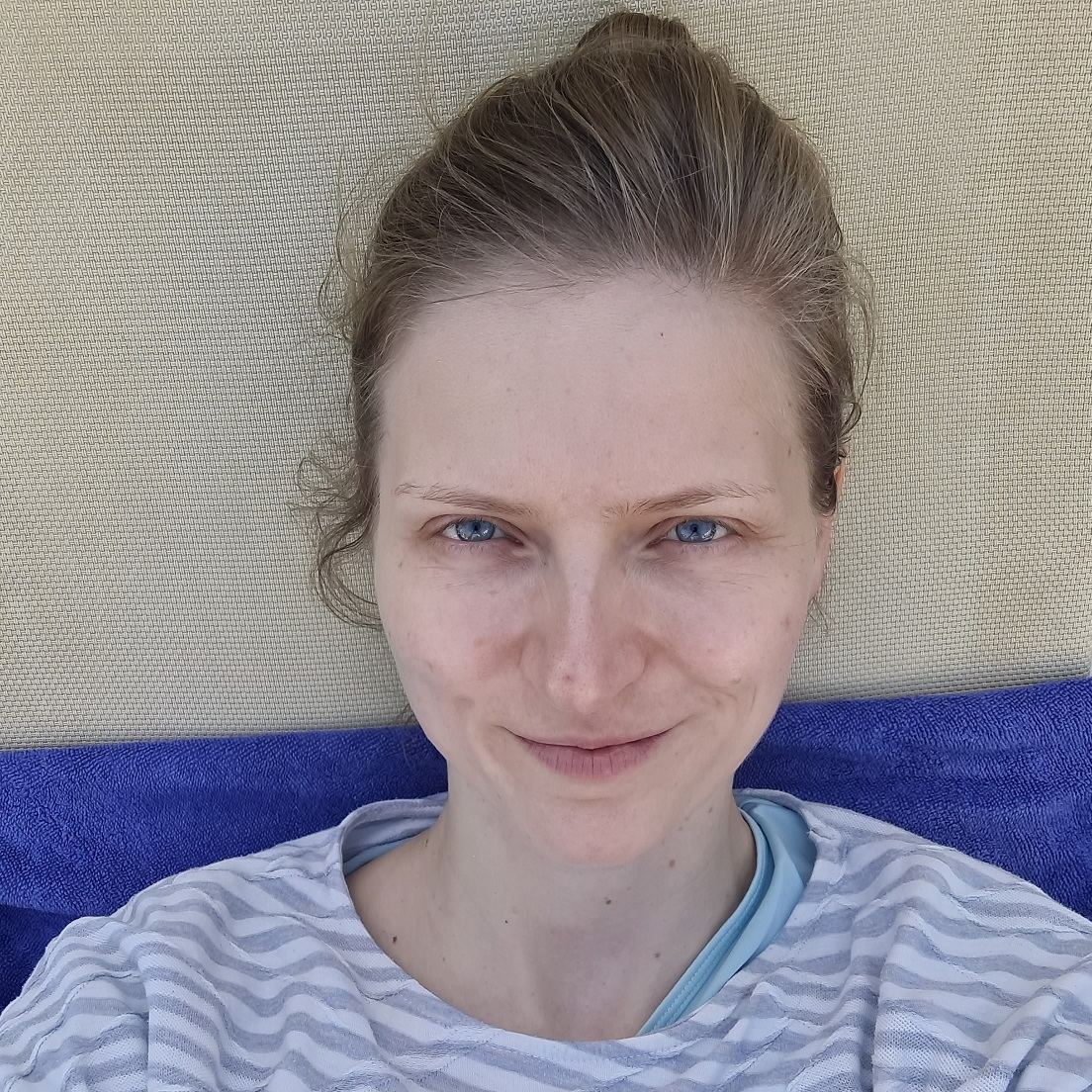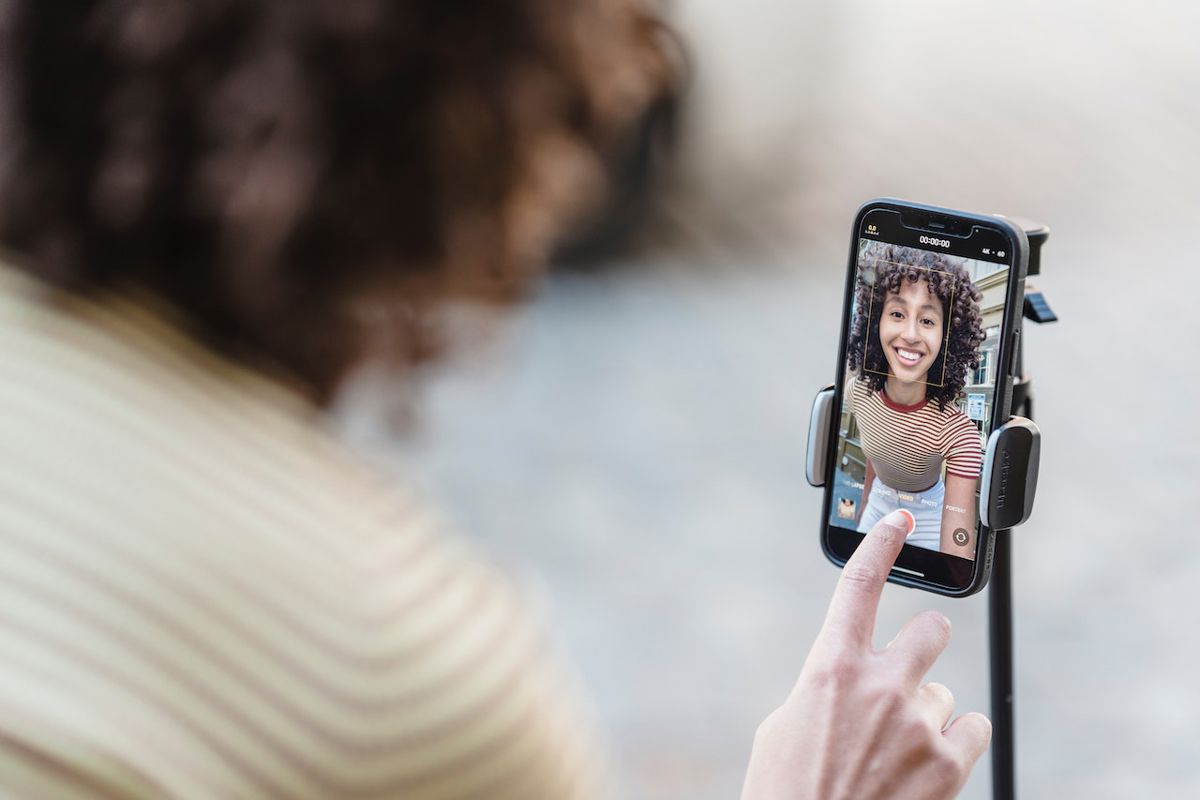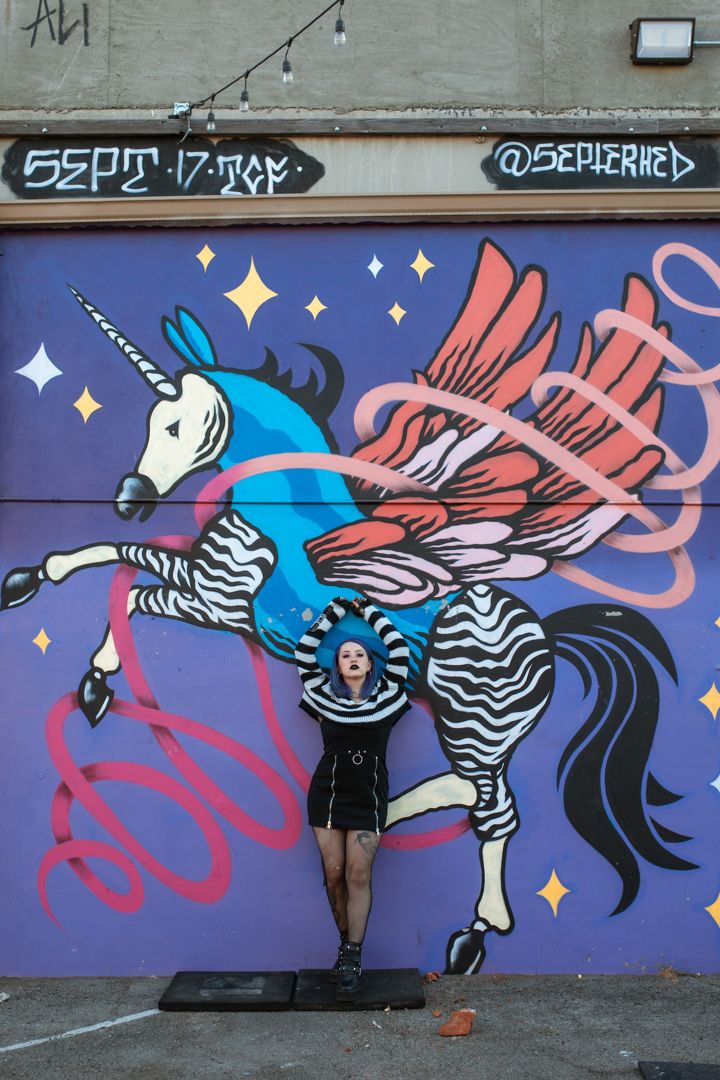Could Not Being Authentic on Social Media Harm You?

Table of Contents
Spaces to Be Authentic
WHYLD’s core theme is to explore authenticity and the many beautiful forms it can take for us. No matter what is important for us in life, how we choose to live it, what we look like, and how we fit in with social conventions – we deserve to be seen as and respected for who we are.
If we do not feel safe to be ourselves in our day-to-day social environments – for example, out of fear of being rejected, ridiculed, plainly not understood, or even of experiencing serious negative consequences – we might, hopefully, find other times and spaces in our lives where we can express these aspects.
We go to art class as an outlet for our more intuitive, creative sides that are not valued in our scientific jobs.
On the nudist beach, we experience a level of freedom that is holy to us but that we do not wish to express at the cost of making others uncomfortable outside of this safe space.
We meet our nerd friends to play computer games together instead of the usual talking we are forced to participate in out there in the world of extraverts and normative socializing rules.
Through inconspicuous-looking back-alley doors, we escape from our daytime responsibilities into secret dungeons where we explore hidden corners of our desire.
We turn our frequently ridiculed goofy side into standing ovations on the local comedy stage.
In the quiet of our bedrooms, we pray to a god that our family doesn’t believe in.
Not all of our many parts will be appreciated in all of our social environments. And that is okay. Not everything needs to be expressed at all times and we are not entitled to impose ourselves on others if it violates their boundaries, makes them feel uncomfortable, or chips away at their own freedom of expression. However, most parts of ourselves want to be expressed and validated at some point, with some people.
If we cannot find a welcoming space or community for some of these aspects in “real life”, we might extend our horizons to the online world. The possibilities are boundless unless you live in a country where access to the internet is somehow restricted.
Our online presence may or may not overlap with our offline social circle. We might not find our family and friends in our online golfing community while we are likely to have them visit our Instagram account.
Now, the good and bad thing about online presence is that we get to carefully curate how we present ourselves there.
Do we only share pictures of the healthiest of our meals while not finding our McDonald’s cheat date-with-ourselves post-worthy?
Do we hide whom we love from our social appearances?
Do we highlight our successes while the stories of our darker moments remain untold?

What do we see when we look into our social media mirror?
Some of the curating, polishing, and leaving out is likely to occur without giving it much thought. It just happens by selection. Think about it. After all, few people ever liked your posts when you wrote about utterly mundane stuff. You yourself do not enjoy looking at pictures that lack aesthetic value, do you? And why should you even feel inspired to take a picture of a plate that was arranged to feed your stomach, not someone’s eyes?
Then there are the more conscious choices about what to share publicly on the internet. The internet never forgets and you never know what the consequences of sharing vulnerable content could be. Those could range from negatively impacting your colleague’s picture of you, to receiving hate comments or having someone exploit your personal information in the future.
But it is not just others who critique your content and could choose to hold it against you. It is you doing it to yourself, too.
Be it with or without intention, you are likely to post stuff that is aligned with who you want to be seen as. Who you feel comfortable being.
Ask yourself right now:
If you are actively using social media, does the content you posted in the past 7 days reflect your personality and life representatively?
Or is it incomplete, is it distorted?
What story does it tell? What does it leave out?
Scientific Research Links Lower Authenticity With Lower Well-Being
Why am I even addressing that? Well, it could be that by curating your online persona in an idealized way you are actually diminishing your life satisfaction offline. That’s right.
A study from 2020 by Bailey, Matz, Youyou & Iyengar found that people who posted more authentic content of themselves on Facebook scored higher on life satisfaction than people whose online self-portrayal deviated more from their authentic selves. The way this study was set up, what was found was merely a correlation between authenticity on social media and reported life satisfaction. Meaning: The results could not answer the question of whether presenting oneself more authentically CAUSED feeling more satisfied with one’s life. A possible alternative explanation could be that people who are more satisfied with their lives choose to present themselves more authentically online.
However, the researchers did another study in which participants were specifically instructed to go through two experimental phases, a) posting intentionally authentic content and b) posting intentionally idealized content, each for the duration of 7 days. All participants went through both phases, though the order of those phases differed randomly across the sample. This time, the study revealed a causal effect, meaning that having posted more authentic content for a week led to a reported greater positive affect, lower negative affect, and higher overall mood. Albeit these positive emotional outcomes might not reflect long-term life satisfaction, they do show short-term benefits of being real in one’s online appearances.
These study results are not really surprising, given the existing body of research that links authenticity with several aspects of happiness and well-being – not specifically in the context of online representation.
In his book “Authentic: How to Be Yourself and Why It Matters”, Stephen Joseph writes:
“Other studies consistently report that, on average, people who score higher on tests for authenticity are more satisfied with life, have higher self-esteem, are less likely to be depressed and anxious, feel more alert and awake, and may even have fewer physical symptoms such as headaches, shortness of breath, and aches and pains.”
Not too short a list of arguments for being more authentic, is it?
Makes one ponder about all the subtle and not-so-subtle ways we are not being our full, true selves on social media, and whether or not we want to change that.
Again, authenticity is not an absolute imperative! It is not wrong, deceptive, or weak not to reveal all about yourself, on and off the internet. There is a time and place for everything – and the wrong one, too. You do not owe anyone your inner truth, nor are you entitled to throwing it at other people, whether or not it serves them to witness it. There are good reasons for keeping some things to yourself, or carefully choosing the arena in which to display them.
Authenticity Is a Privilege Not Everyone Has

We are all unqiue-orns. Sometimes we let the world see what makes us special, sometimes we try to blend in.
One important thing to keep in mind is: Being authentic is not accessible to all people equally.
If you are young, in good health, and sporting the physical features deemed attractive in your gender, it is not much of a risk to post a no-filter picture of yourself in your summer outfit, isn’t it?
If you barely have the financial means to keep yourself afloat you get fewer opportunities to post beautiful portraits of your cocktail on the beach, a fancy restaurant visit, or the stunning travel vistas, don’t you?
Among the many things society rewards are beauty, financial success, education, fitness, mental health, conforming with gender norms as well as conventions regarding what love, sex, and family life should look like.
If you fit the mould, revealing your authentic self is likely to be rewarded and, thus, you will feel even more encouraged to do so in the future. If, instead, you deviate from this “ideal”, well… making yourself visible might still feel freeing and wholesome – until you face the social consequences of not representing what is popular and socially encouraged.
What’s more: If you are already vulnerable due to social disadvantages (e.g. being a person of colour, having grown up poor and with fewer opportunities, lacking the security of a strong social network), you might be less inclined to take further risks and choose to avoid making yourself vulnerable any further.
Just consider the workspace: According to a study published by JobSage in 2022:
- more LGBTIQ employees than their heterosexual colleagues hide aspects of themselves at work
- more black than white employees hide things about themselves out of fear of being stereotyped, discredited, or fired
- more parents than non-parents have experienced backlash after being authentic
Long story short: I am inviting you to acknowledge for a moment how the person next to you might or might not feel the same level of safety around showing their authentic self, online or offline.
Your Turn: Up for the Authenticity Challenge?
After having disclaimed that you should not feel pressured by anyone into revealing more about yourself than what you feel safe with, let me ask you:
Do you recognize how you have been moulding and carving your online (or offline, for that matter) appearances?
Is what you post on social media (if you post at all) representative and authentic, or is it distorted and idealized?
What aspect of yourself are you hiding that is not worth the cost of decreasing your well-being because of it?
I would like to invite you to do a 7-day authenticity challenge together with me. If you choose to do it, vow to post a more wholesome, representative, and unfiltered image of yourself for the next 7 days.
For some inspiration:
- Unless you are wearing make-up 24/7, don’t cover up the raw, beautifully natural you before posting a picture.
- Have a messy mind today? You don’t always have to have it all together to tell us about what’s going on inside you.
- We love celebrating your successes with you – but what about the fruitful attempts and stupid mistakes along the way?
Think about the gaps, the pieces you tend to leave out normally. Would you – or someone else – benefit from filling them with what resides there?
Reflect on what you typically highlight, exaggerate, or polish. What would happen if you let these aspects flow out into the world, untreated?
I – Tina – am up for the challenge myself and curious about what will see the light of day. I will post my 7-day challenge content on WHYLD’s Facebook & Instagram account.
Join me there & share your experience with your own Authenticity Challenge!

We ourselves shape what we get to see on social media.
Resources
Bailey, E. R., Matz, S. C., Youyou, W., & Iyengar, S. S. (2020). Authentic self-expression on social media is associated with greater subjective well-being. Nature communications, 11(1), 4889.
Mason, K. (2022, September 7). Study: Over 3 in 5 Are Hiding Something From Their Employer – JobSage. JobSage. https://www.jobsage.com/blog/authenticity-in-the-workplace-survey
Joseph, S. (2016). Authentic: How to be yourself and why it matters. Piatkus.
photos: Tina Hewelt, Blue Bird (Pexels), RDNE Stock project (Pexels), Ketut Subiyanto (Pexels)
Subscribe
Login
0 Comments
Oldest
Newest
Most Voted
Inline Feedbacks
View all comments